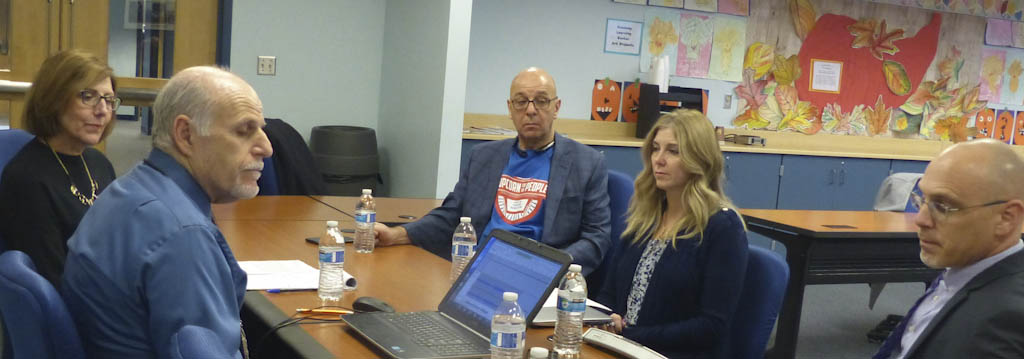While discussing Community-Based Instruction (CBI) on the Educational Services Commission of New Jersey’s (ESCNJ) Better Together podcast, first-year South River Public Schools Superintendent Sylvia Zircher remarked on the organization’s value in “teaching you how to fish” when it comes to operating educational programs.
Zircher, a first-year ESCNJ board member as well, noted how the support and expertise is invaluable and most welcomed, in a statement prepared by the ESCNJ.
Of particular significance is the support provided for CBI as “a key springboard toward independent living for some special needs students,” according to ESCNJ’s CBI Supervisor Raissa Prus.
The Better Together podcast exploring CBI can be heard by visiting
www.teachertube.com/audio/11117
The CBI curriculum helps students gain hands on work experience, use public transportation, and shop for food and clothing, in addition to meal preparation and accessing community resources such as the library and post office, Prus said in the statement. The job sampling can run the gamut from working at a grocery or department store, to a restaurant or hospital, and recently, to a corporate environment as well.
Sayreville Public School’s Director of Student Services David Knaster, another Better Together guest, said CBI instruction is “not a field trip” for students.
“CBI is tied to New Jersey Department of Education learning standards, and the training students receive is repeated and sustained for a significant period of time,” he said in the statement.
Knaster underscored the importance of CBI for special needs students.
“Our students are loved and protected from preschool through high school; however, they need the skills to independently navigate in the community without adult assistance to the fullest extent possible,” he said.
Knaster said 24 Sayreville students have been enrolled in ESCNJ’s CBI programs and “not one student or parent has asked to have the student removed, which is remarkable,” adding some students have gone on to paid employment in the retail fashion industry, and local department stores.
Prus also cited “success stories” of students gaining paid employment delivering auto parts and working as a cashier.
Another guest, radiologist Dr. Steven Bier, said in the statement that it was difficult for his son Samuel, who is on the autism spectrum, to find meaningful employment.
“Our frustration motivated us to take the bull by the horns,” he said.
Ultimately, Bier began researching employment opportunities, and came across a local popcorn store for sale. With no experience in the industry, Bier purchased the store almost three years ago. Despite some setbacks, the enterprise, named “Popcorn for the People,” has evolved to offer training and employment in popcorn production, sales and distribution for approximately 15-20 adults with autism and developmental disabilities, including several from ESCNJ’s CBI program.
Popcorn for the People, sold at fundraisers, sporting events and online, is the supplier for Rutgers sporting events, and recently relocated to a larger facility in the Harts Lane complex in East Brunswick.
“Some employees stay with us long term while others move on to jobs requiring managerial experience,” he said in the statement.
Bier said the ESCNJ students he employs are exemplary workers.
“The job is really important to them,” he said, adding potential employers will find “they don’t drink, don’t smoke, come to work on time, and take the job seriously.”
An additional component of Popcorn for the People is its “safe house” feature.
“If an employee moves to a job and is having trouble mastering a skill, they are welcome to return so we can help them learn whatever is required,” he said in the statement.
Zircher pointed out that all people have strengths and weaknesses, and commended CBI employers for “not making any assumptions, and working with students to help them identify what they are able to do well.”
Prus said CBI employers are typically willing to work out any issue that comes up on the job. Recalling “a significant behavioral issue” recently, she said in the statement that, “I was concerned the employer was going to say the student could not return; however, he said he wanted to keep the student and give him another chance.”
Knaster said the CBI program help to promote a “culture of acceptance to employers,” with regard to special needs students.
Involvement with CBI “is an opportunity to make a real difference in someone’s lives,” Bier added.

